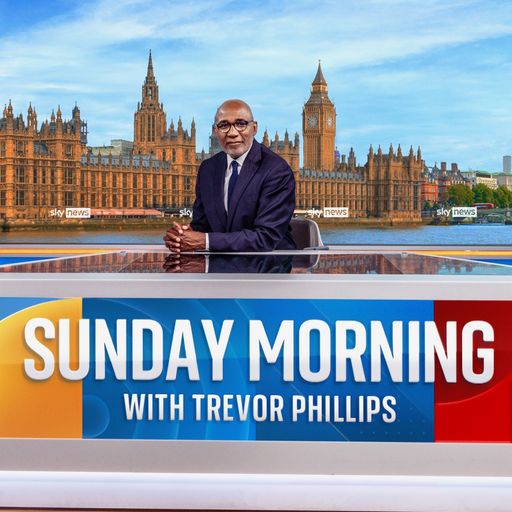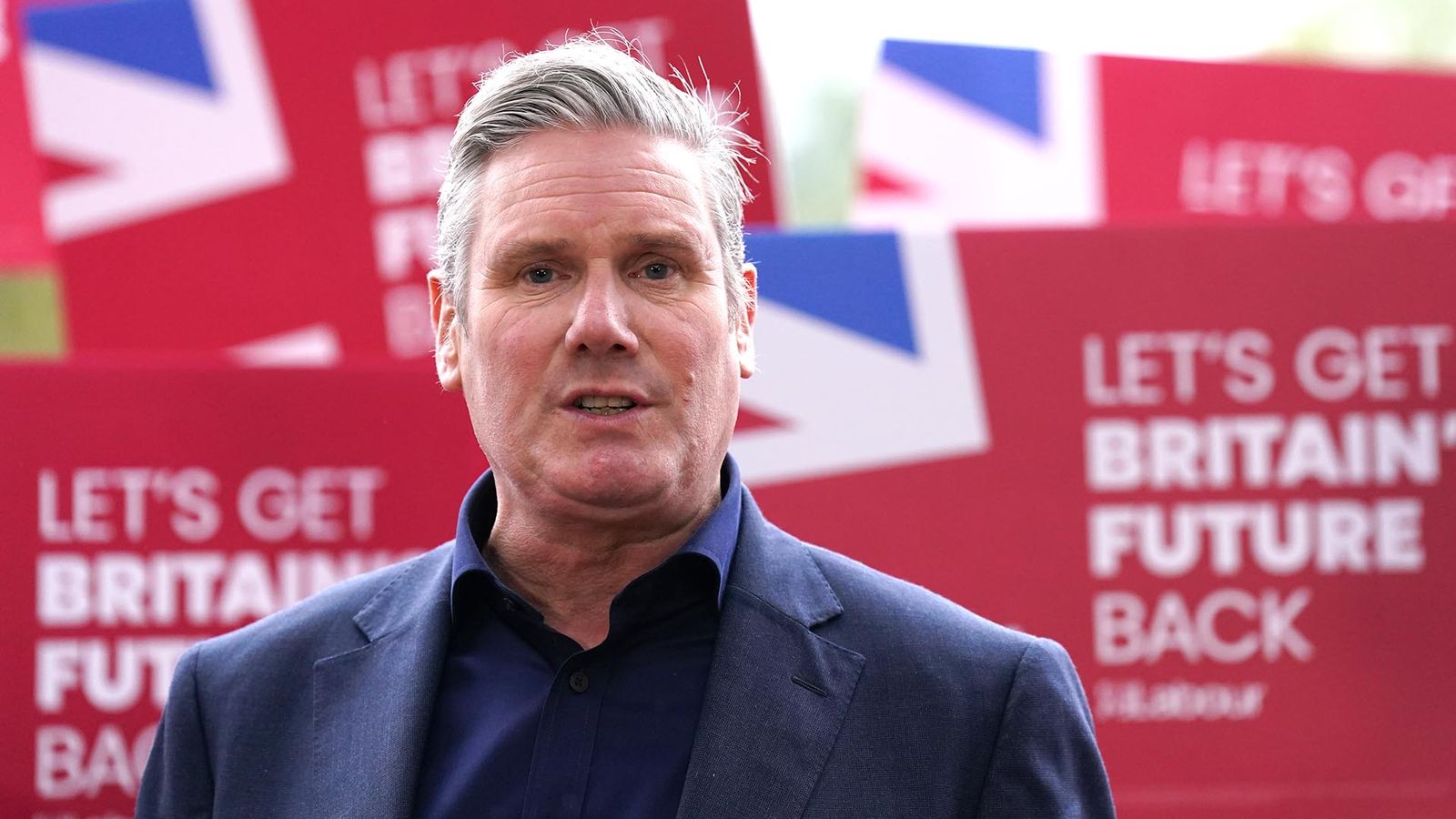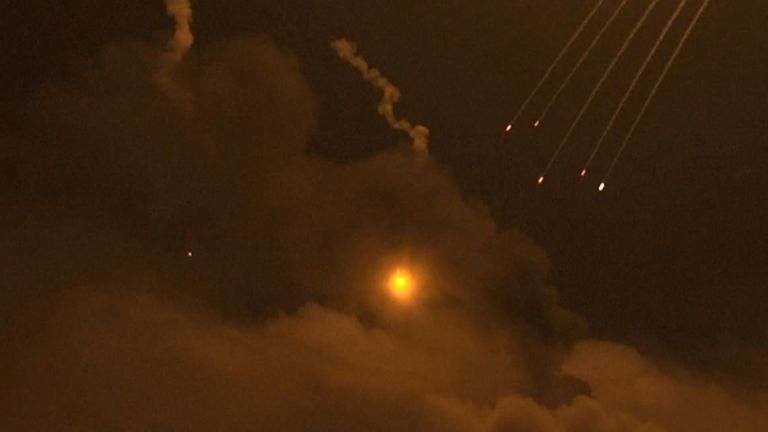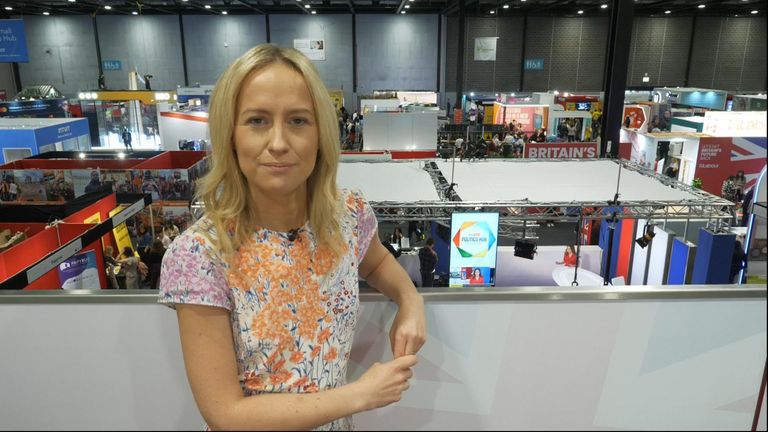
Sir Keir Starmer has insisted there is “unity” within Labour, despite demands for him to change his stance on the Israel-Hamas war and back calls for a ceasefire.
The growing descent in his party hit a new peak late on Thursday, when two council leaders called on the Labour leader to resign over his position on the Middle East conflict.
They accused Sir Keir of “blindly following” the government and not standing up for “Labour values”.
The Labour leader has backed calls for “humanitarian pauses” in the fighting but has previously said he does not believe a ceasefire is the “correct position” to take.
A number of other senior party figures, including London mayor Sadiq Khan, Scottish Labour leader Anas Sarwar and Greater Manchester mayor Andy Burnham, have also recently broken ranks to call for a ceasefire.
But, speaking at an event in Durham on Friday, Sir Keir said the “focus” should be on people in Gaza and Israel who “most desperately need our support and help – not on political voices in our own country”.
Politics live: Rishi Sunak says pro-Palestine protests on Armistice Day ‘provocative’
After outlining how his party had been singing from the same hymn sheet at its recent conference over its plans for government, the Labour leader said: “On the question of Gaza, there is also unity.
“Whether people are asking for a ceasefire or a humanitarian pause, it comes from the same place, which is… people desperately want to see an alleviation of a situation.
“That is a human emotion to what we’re seeing on our televisions, and images and reports, every single day. I am not surprised that people are trying to go for any option that they see would alleviate the awful situation.
“I don’t think that should be taken as great division. That is a human emotion. What I’ve done is share that emotion… but what I’ve concentrated on is what is the practical way to alleviate the situation on the ground.”
Sir Keir said aligning with both the British and American governments in their calls for so-called humanitarian pauses in the fighting, to allow aid into the Gaza Strip, would help “bring about that change”.
He added: “For me, this isn’t about the particular position taken by individuals in the Labour Party. It’s about alleviating that suffering.”
Read more from Sky News:
Israel-Gaza latest: Hezbollah chief praises ‘sacred’ Hamas attack
Zara Aleena’s murderer wins appeal for shorter sentence
‘Violent’ winds on the way in Storm Ciaran aftermath
Asked if he would fire any shadow ministers who disagreed with him and continued to call for a ceasefire, Sir Keir said: “Collective responsibility is important”.
He added: “It’s my job as leader of the party to assess how we enforce and bring about collective responsibility. And I will do so.
“But I’ve set out my position clearly. I am not doing so in accordance with particular views that individual members of the Labour party may or may not take. That is not my central objective and I do not think that should be the priority.
“The priority is to get change in the situation [in the Middle East] just as quickly as we can.”
Sir Keir was in the North East to set out his mission for government to business leaders, as he called for this week’s King Speech to act as a “kick start” to “get Britain building”.
Prime Minister Rishi Sunak‘s policy agenda for the 12 months ahead is due to be delivered on Tuesday, as Westminster prepares for the pomp and ceremony of the State Opening of Parliament.
Reports suggest there will be a big focus on crime from the government, as well as legislative plans for conference announcements, such as phasing out smoking.
The Labour leader outlined what he believed should feature in the speech in order to achieve a “decade of national renewal” – including building more infrastructure, overhauling planning systems, and upskilling young people in new technical colleges.
“Next week is the King’s Speech and we can already see it will only bring more of the same,” said Sir Keir. “A manifesto for the 14th year of Tory failure and the starting gun fired on the next general election.
“[That vote will be] a choice of a Conservative Party with no plan for the future, hurtling down the only high-speed project it’s ever managed to build – the highway to British decline – or the Labour alternative, a party that understands the potential that lies in regions like this, that has a plan to grow every corner of this country.”
He added: “The King’s Speech should be about a national mission to get Britain building again and to grow our country from the grassroots, because Britain needs a new business model.”















